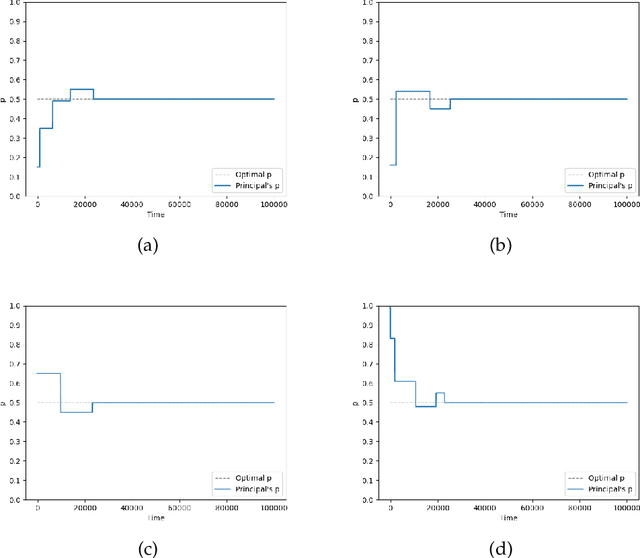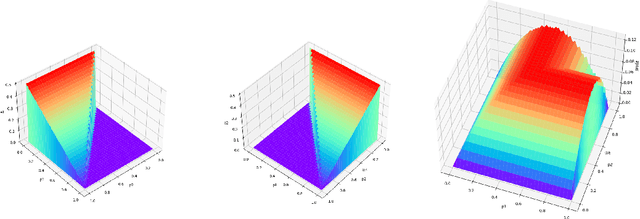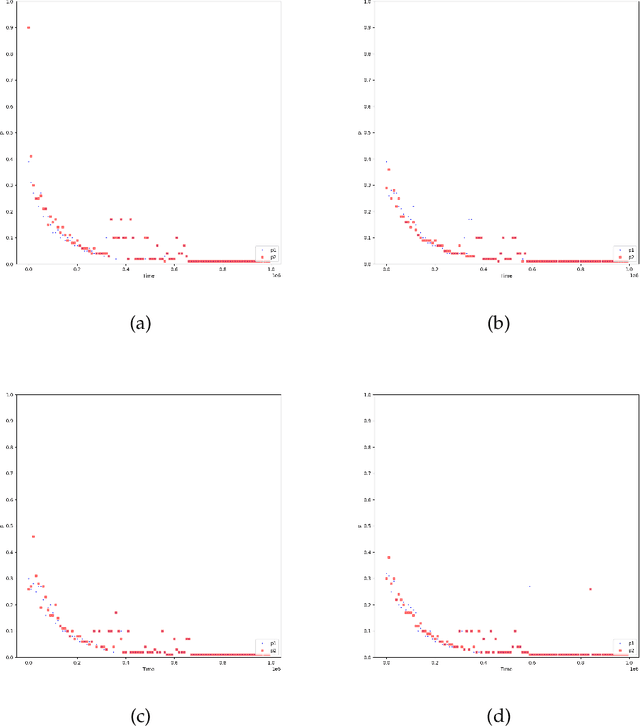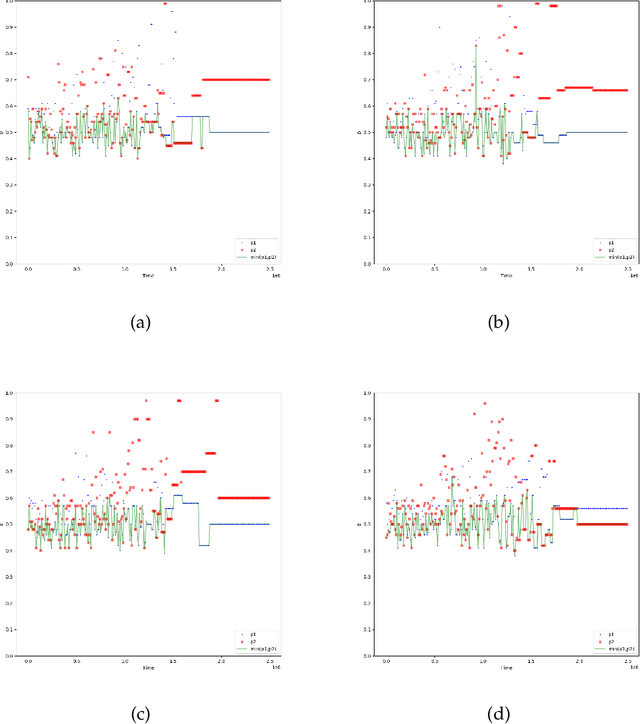Wuming Fu
Artificial Intelligence and Dual Contract
Mar 22, 2023



Abstract:With the dramatic progress of artificial intelligence algorithms in recent times, it is hoped that algorithms will soon supplant human decision-makers in various fields, such as contract design. We analyze the possible consequences by experimentally studying the behavior of algorithms powered by Artificial Intelligence (Multi-agent Q-learning) in a workhorse \emph{dual contract} model for dual-principal-agent problems. We find that the AI algorithms autonomously learn to design incentive-compatible contracts without external guidance or communication among themselves. We emphasize that the principal, powered by distinct AI algorithms, can play mixed-sum behavior such as collusion and competition. We find that the more intelligent principals tend to become cooperative, and the less intelligent principals are endogenizing myopia and tend to become competitive. Under the optimal contract, the lower contract incentive to the agent is sustained by collusive strategies between the principals. This finding is robust to principal heterogeneity, changes in the number of players involved in the contract, and various forms of uncertainty.
 Add to Chrome
Add to Chrome Add to Firefox
Add to Firefox Add to Edge
Add to Edge